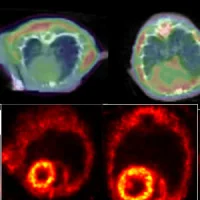Despite multiple examples of glucose-lowering therapies affecting heart failure (HF) risk, ascertainment of HF data in cardiovascular (CV) outcome trials of these medications has not been systematically characterised, according to a review published in the Journal of the American College of Cardiology.
"Even recently completed large CV outcome trials of novel glucose-lowering agents lack sufficient details to fully appraise treatment effects on a HF endpoint or relative safety in patients with prevalent HF," write Stephen J. Greene, MD, Division of Cardiology at Duke University Medical Center and co-authors.
In recent years, a close relationship between type 2 diabetes mellitus (DM) and HF has become increasingly apparent. Data show that among patients hospitalised for HF, the prevalence of DM may exceed 40 percent. Concomitant presence of both conditions worsens prognosis and complicates treatment. Moreover, data suggest that strict glycaemic control may not meaningfully change the risk for HF in patients with DM, and multiple clinical trials have found glucose lowering therapies associated with increased or decreased risk for HF events, compared with placebo.
Despite these findings confirming important pathophysiologic and clinical interactions between DM and HF, Dr. Green et al. say the rigour with which HF data have been ascertained within DM trials remains modest.
In this systematic review, large (n >1,000) published phase III and IV cardiovascular outcome trials evaluating glucose-lowering therapies through June 2017 were identified. Overall, 21 trials including 152,737 patients were evaluated. Rates and definitions of baseline HF and incident HF were inconsistently provided, according to the review team. In three studies, baseline ejection fraction data were provided but these were not specific to patients with HF. No trial reported functional class, ejection fraction, or HF therapy at the time of incident HF diagnosis. HF hospitalisation data were available in 15 trials, but only two included HF-related events within the primary composite endpoint.
The review team also found that no trial reported data for CV biomarkers, such as natriuretic peptides (NPs), to contextualise the HF event definition. "Assessment of NP level is inexpensive, is widely used, and may improve the diagnostic accuracy of HF-related events. When available, trials should collect local NP level and other relevant data (e.g., cardiac imaging) from the time of a suspected HF event," the team explains. "We believe that standardised definitions are critical for evaluating the impact of HF events on other clinical outcomes."
Moving forward, Dr. Greene and his colleagues strongly recommend that CV outcome trials of glucose-lowering therapies be viewed in the context of two distinct but important goals for purposes of HF: 1) evaluation of downstream incident HF among patients without HF at baseline; and 2) evaluation of safety and/or efficacy signals among patients with prevalent HF at baseline.
"Although dedicated trials of glucose-lowering therapies among patients with established HF will likely remain necessary for purposes of drug labelling and changing HF guidelines, we believe that accurately defining and characterising HF within CV outcome trials is critical for successful application of safety and efficacy findings to routine clinical practice," the authors write.
Source: Journal of the American College of Cardiology
Image Credit: Pixabay
References:
Greene SJ et al. (2018) Prevalent and Incident Heart Failure in Cardiovascular Outcome Trials of Patients With Type 2 Diabetes. J Am Coll Cardiol. March 27, 2018:1379–90 https://doi.org/10.1016/j.jacc.2018.01.047
Latest Articles
diabetes, heart failure, glucose-lowering therapies, cardiovascular outcome
Despite multiple examples of glucose-lowering therapies affecting heart failure (HF) risk, ascertainment of HF data in cardiovascular (CV) outcome trials of these medications has not been systematically characterised, according to a review published in th










